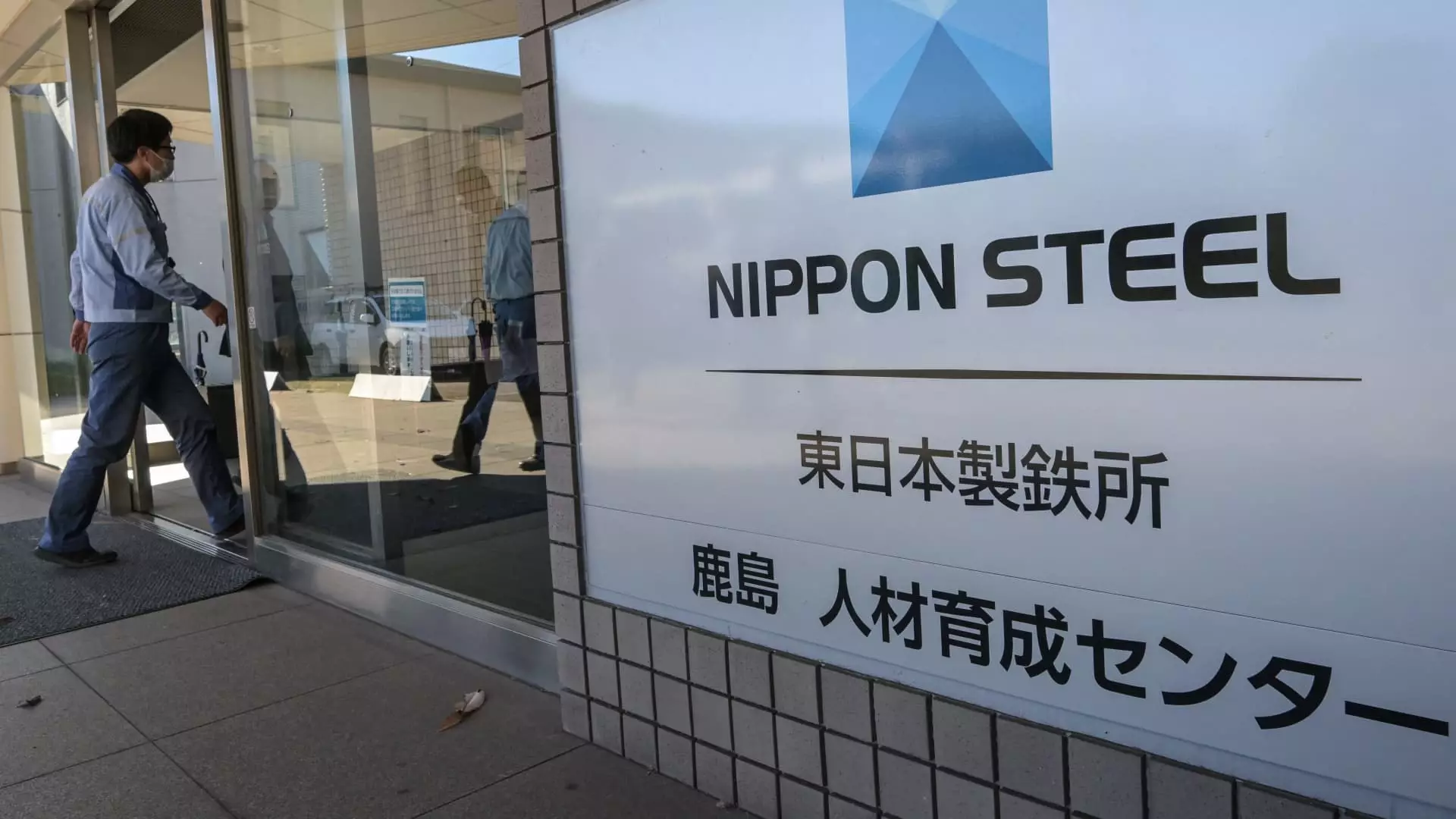In a significant move reflecting the complexities of economic strategy and national security, President Joe Biden has decided to thwart the $14.9 billion takeover bid by Nippon Steel for U.S. Steel. This unexpected refusal comes in the wake of intense scrutiny from the Committee on Foreign Investment in the United States (CFIUS), which failed to reach a consensus on the acquisition’s implications. As the global steel market continues to evolve, this decision raises questions regarding America’s industrial independence and the intricate balance between foreign investment and national security.
The CFIUS initiated a comprehensive review of the acquisition, ultimately forwarding its concerns to Biden on December 23, giving him a limited time frame of 15 days to respond. During this inspection, the committee voiced apprehensions about potential production cutbacks post-acquisition that could jeopardize U.S. steel supplies. Such reductions might lead to severe shortages in industries deemed critical to the nation’s security, which were particularly highlighted in CFIUS’s statement.
While Nippon Steel attempted to address these concerns by proposing various commitments—including a provision for the U.S. government to veto production reductions—Biden’s response, which favored maintaining U.S. ownership and operational control of major steel enterprises, indicates a strong inclination toward safeguarding domestic interests. The extension of the deal’s deadline until 2025, vis-à-vis initial plans spanning into 2024, strongly suggests that Nippon Steel was preparing for further negotiations to alleviate fears.
Biden’s decision underscores a growing apprehension within U.S. governance concerning foreign acquisitions, particularly in sectors critical to national infrastructure and security. The situation surrounding U.S. Steel serves as a microcosm of a broader national dialogue about economic autonomy. National security is increasingly defined not just in military terms but also through economic resilience, particularly concerning essential materials that support defense industries and infrastructure.
Given recent global supply chain disruptions and geopolitical tensions, this prioritization of domestic steel production aligns with a national strategy seeking to re-establish a robust industrial base capable of withstanding external pressures. This perspective resonates with arguments put forth by Biden during his presidency, emphasizing the importance of maintaining American companies as firmly U.S.-owned entities.
The reaction to Biden’s decision has been multifaceted. U.S. Steel executives, backed by shareholder support, framed the acquisition as beneficial for economic growth and competitive positioning within the global market. President and CEO David B. Burritt had noted an overwhelming endorsement from shareholders, which highlights the disconnect between market-oriented strategies and governmental regulatory decisions.
On the other hand, political figures like former President Donald Trump have bolstered protectionist rhetoric, echoing sentiments against the loss of American control over foundational industries. By categorically opposing the takeover, he effectively tapped into a growing sentiment among a segment of the American electorate wary of the implications of foreign ownership in significant sectors.
The final blockage of the Nippon Steel acquisition could ripple through the steel industry in various ways. For one, it reinforces a protective stance that might deter future foreign investments, which could result in companies reevaluating their strategies when considering engagement with U.S. markets. Additionally, it sets a precedent that reassures domestic producers about the importance of U.S. ownership, potentially galvanizing efforts to enhance operational efficiencies and meet shifts in demand independently.
Furthermore, the decision reflects broader geopolitical dynamics wherein nations are increasingly scrutinizing foreign participation in industries deemed sensitive or strategic. As the global landscape shifts, maintaining operational sovereignty in critical industries will likely become a central theme in future negotiations around trade and investment policies.
President Biden’s block on Nippon Steel’s bid for U.S. Steel symbolizes a critical moment that encapsulates the intricate relationship between globalization, national security, and economic interests. As the federal government navigates this complex landscape, the emphasis on maintaining robust domestic industries will continue to shape policies that impact investor confidence and the future competitiveness of the U.S. steel market. Ultimately, the incident may serve as a catalyst for broader discussions on how nations define security in an increasingly interconnected world.


Leave a Reply